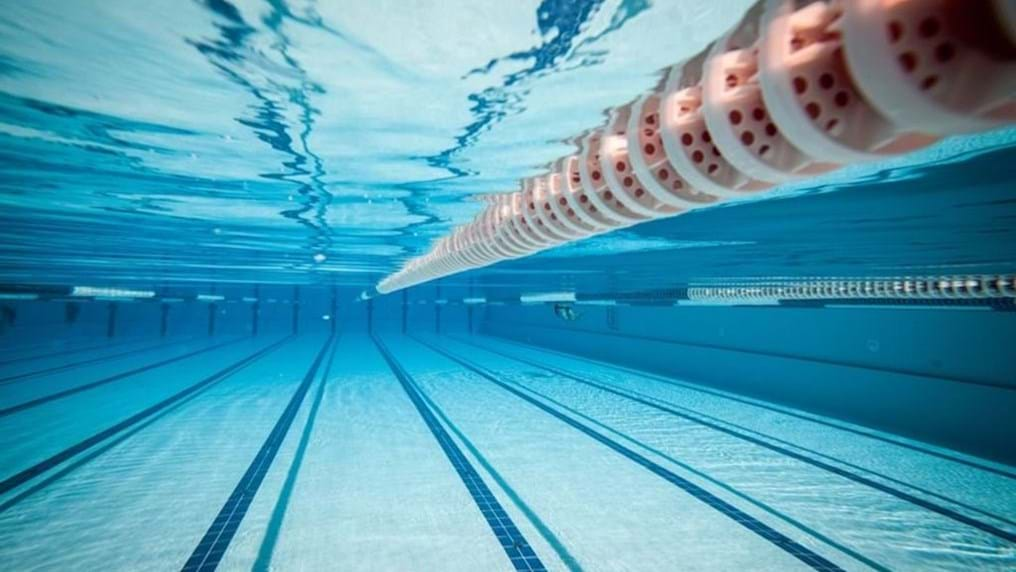Day 220: Can you drink all the water in an Olympic size swimming pool?

2nd January 2015
Author: Geoff Maitland, IChemE President 2014–2015.
Depending on depth, the pool will hold between 1.25 million litres of water (1 m depth) to 2.5 million litres of water (2 m depth). And if you assume we all drink between 2-4 litres of water each day, that would take over 3,400 years for one person to consume.
In fact, many of us will consume all the water in the smaller size swimming pool in just one year. It's all due to the amount of 'hidden water' we consume in our food.
These numbers may be hard to believe but here's a few examples of how easy it is to build up your water footprint based on three main meals a day - even without dessert!
- Breakfast - 1,260 litres
A breakfast of two eggs, two sausages, beans, two slices of toast and butter has a water footprint of 1260.5 litres - Lunch - 1,145 litres
A meal of lamb, rice, sweetcorn and vegetables has a water footprint of 1145.5 litres - Dinner - 2,254 litres~
A meal of steak, chips and salad has a water footprint of 2254 litres
Data courtesy of www.onedrop.org.
In total, these meals contain 4,660 litres of hidden water. Here's why.
An estimated 70 per cent of all extracted freshwater is used for agriculture alone with 20 per cent being used in the production and processing industries (including food processing). Just ten per cent is consumed domestically.

In the case of beef, around 3,091,000 litres of water is needed to produce 200 kilos of boneless beef. This number includes the water drunk directly by the cows over three years, plus the grain and other products it feeds on, and the water used in the processing of the meat.
It's a similar story for the other foods on the plate. And this consumption will only get worse as the population grows and moves to a western-style diet.
Estimates suggest water extraction will increase by over 50 per cent to 6,900 billion m3 per year by 2050. This will provide the 60 per cent more food needed to feed a population of this size.
- Reducing water use
- Recycling and reusing waste water
- Using alternative water sources
IChemE has also outlined a series of recommendations for governments, industry and decision-makers, to drive forward the changes needed to reduce the amount of water used in food:
- all governments should set targets for reducing the amount of water used in food production worldwide by 20% by 2020
- industry should improve the monitoring of water usage in food production worldwide by using water footprinting
- governments should ensure that the use of recycled water in food production becomes more widely accepted through creating, enforcing and promoting rigorous international quality standards
- manufacturers should be incentivised to use alternative, sustainable sources of water (e.g. water in food, rainfall, saltwater)
- an investment of £500 billion (US$800 billion) per year in the construction of new capacity, infrastructure and appropriate technologies to improve efficiency of water management globally.
Water is a finite resource, and it will become more precious over the next few generations. You can find out more about how chemical engineers are raising awareness and solving the problems in IChemE's first Green Paper 'Water Management in the Food and Drink Industry'.
IChemE's Green Papers are an opportunity for chemical engineers with expertise in the relevant areas to contribute. But to do this we all need to get involved.
The next Green Papers will cover these areas:
- energy use in the pharmaceutical industry
- where does wellbeing fit into the water-energy-food nexus?
- water and sanitation; the role of chemical engineers in delivering a human right
- food safety and traceability; how chemical engineering contributes.
But for these to be a success IChemE needs us to tell them about our work, what we think is important and how do we think chemical engineering will change the world in the next decade? What are the challenges and barriers, and what realistic recommendations can IChemE make on our behalf?
If you’ve got an opinion on what matters or an example of where chemical engineers have provided a solution, then please discuss your ideas with the policy team via CEM@icheme.org.
ChemEng365 blog
Geoff Maitland launched this blog during his IChemE presidency in 2014. ChemEng365 features 365 chemical engineering successes and achievements throughout his year-long presidency.